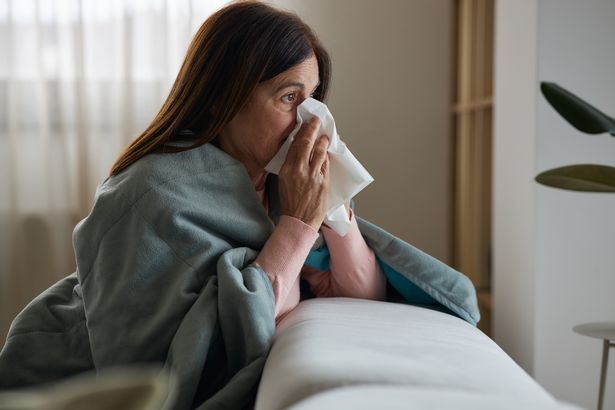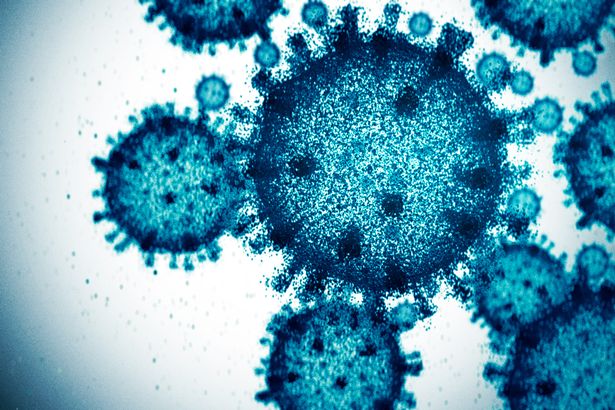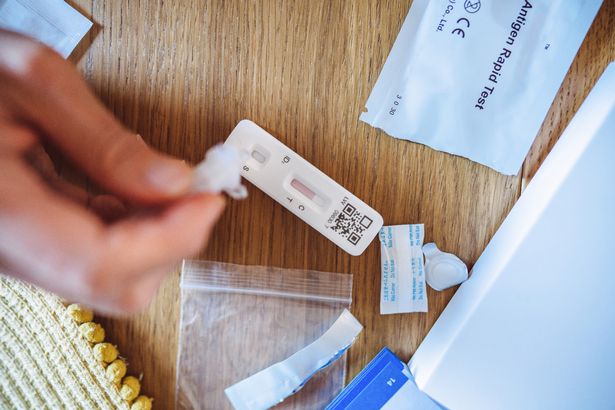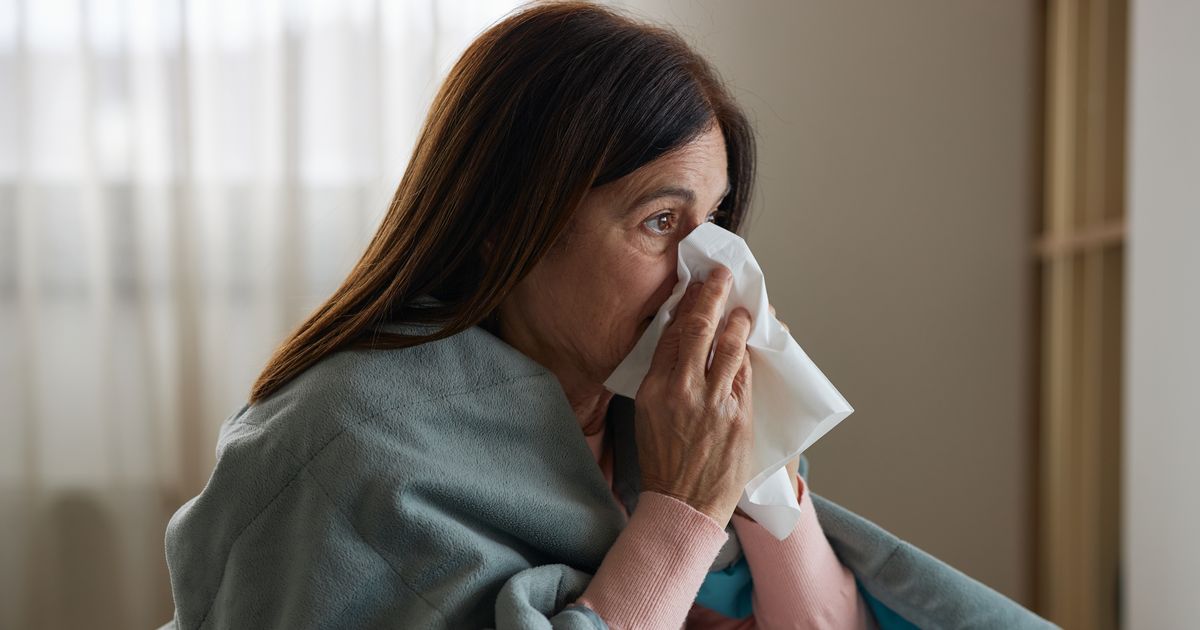The UK Health Security Agency (UKHSA) has issued a 20-second warning to help curb the spread of Covid.
12:44, 03 Oct 2025Updated 12:53, 03 Oct 2025
The UK Health Security Agency (UKHSA) has issued a 20-second warning to help curb the spread of Covid. Its advice comes as two variants of the infection are currently the most prevalent in the UK.
Figures from the Royal College of GPs show that rates of Covid are now increasing across the UK. Hospital admissions linked to Covid are also going up.
In an update from the UKHSA, it explained that most common variants in the UK currently are the XFG and NB.1.8.1 – also known as Stratus and Nimbus. The UKHSA said: “Our genomic surveillance of SARS-CoV-2 lineages last month found that 35 per cent were classified as XFG.3, 28 per cent were classified as XFG, 11 per cent were classified as NB.1.8.1, seven per cent were classified as XFG.5 and seven per cent were classified as XFG.3.4.1.”
At the moment it is not thought that these variants lead to more severe illness than other variants in circulation. The UKHSA continued: “It’s normal for viruses to mutate and change, and as more data becomes available on these variants we’ll have a better understanding of how they interact with our immune systems and how to optimise our protection, as well as actions we can take to keep the most vulnerable safe and live our lives as normally as possible. ”
 The UKHSA has issued advice on how to prevent the spread of Covid(Image: Getty)
The UKHSA has issued advice on how to prevent the spread of Covid(Image: Getty)
It stated that the “most important thing” is for those eligible to get their vaccination when it is due. On top of this, it provided advice for anyone who is unwell or experiencing Covid symptoms.
 Two variants of Covid are currently prevalent in the UK(Image: Getty)
Two variants of Covid are currently prevalent in the UK(Image: Getty)
“If you have symptoms of a respiratory infection, such as COVID-19, and you have a high temperature or do not feel well enough to go to work or carry out normal activities, you should avoid contact with vulnerable people and stay at home if possible,” the UKHSA said.
However, if you are unable to stay home it issued guidance on a 20-second rule that could help minimise the risk of spreading the virus. You should “wash your hands frequently with soap and water for 20 seconds” after coughing, sneezing and blowing your nose and before you eat or handle food, it said.
 The UKHSA said the “most important thing” is for those eligible to get their vaccination when it is due(Image: Getty)
The UKHSA said the “most important thing” is for those eligible to get their vaccination when it is due(Image: Getty)
It also recommended you:
Wear a well-fitting face covering made with multiple layers or a surgical face maskAvoid crowded places such as public transport, large social gatherings, or anywhere that is enclosed or poorly ventilatedTake any exercise outdoors in places where you will not have close contact with other peopleCover your mouth and nose when you cough or sneezeAvoid touching your faceSymptoms
According to the NHS, symptoms of Covid include:
A high temperature or shivering (chills) – a high temperature means you feel hot to touch on your chest or back (you do not need to measure your temperature)A new, continuous cough – this means coughing a lot for more than an hour, or three or more coughing episodes in 24 hoursA loss or change to your sense of smell or tasteShortness of breathFeeling tired or exhaustedAn aching bodyA headacheA sore throatA blocked or runny noseLoss of appetiteDiarrhoeaFeeling sick or being sick
The symptoms are very similar to symptoms of other illnesses, such as colds and flu.

